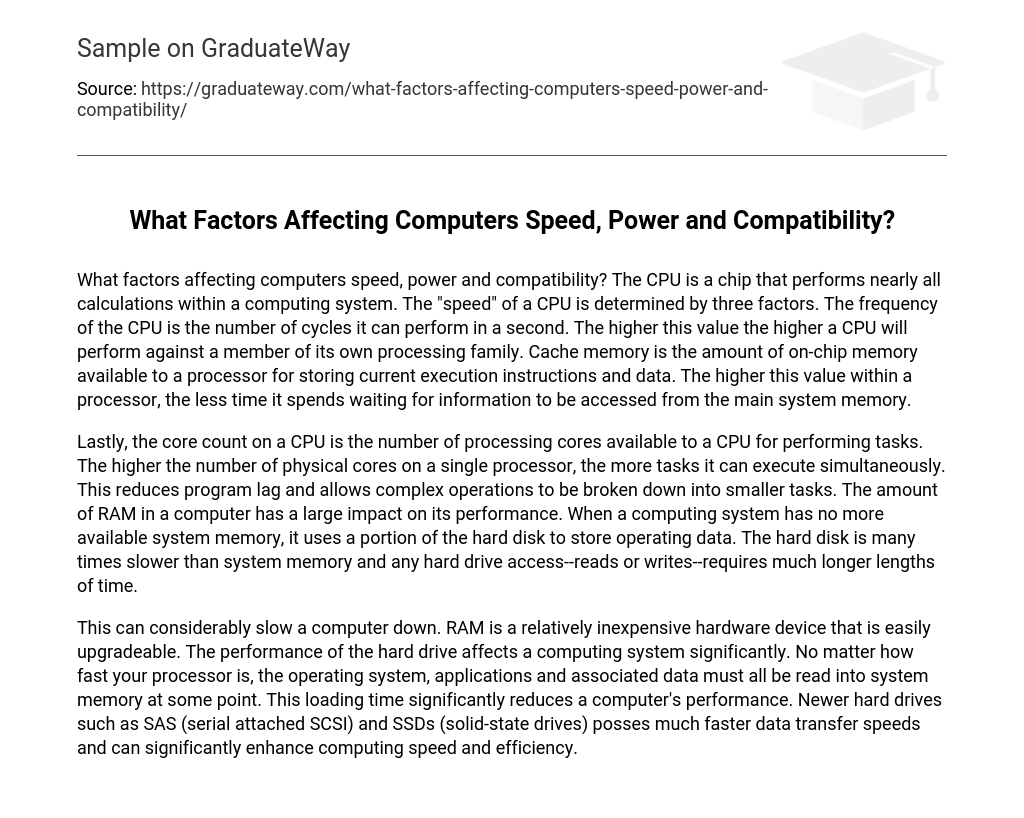What factors affecting computers speed, power and compatibility? The CPU is a chip that performs nearly all calculations within a computing system. The “speed” of a CPU is determined by three factors. The frequency of the CPU is the number of cycles it can perform in a second. The higher this value the higher a CPU will perform against a member of its own processing family. Cache memory is the amount of on-chip memory available to a processor for storing current execution instructions and data. The higher this value within a processor, the less time it spends waiting for information to be accessed from the main system memory.
Lastly, the core count on a CPU is the number of processing cores available to a CPU for performing tasks. The higher the number of physical cores on a single processor, the more tasks it can execute simultaneously. This reduces program lag and allows complex operations to be broken down into smaller tasks. The amount of RAM in a computer has a large impact on its performance. When a computing system has no more available system memory, it uses a portion of the hard disk to store operating data. The hard disk is many times slower than system memory and any hard drive access–reads or writes–requires much longer lengths of time.
This can considerably slow a computer down. RAM is a relatively inexpensive hardware device that is easily upgradeable. The performance of the hard drive affects a computing system significantly. No matter how fast your processor is, the operating system, applications and associated data must all be read into system memory at some point. This loading time significantly reduces a computer’s performance. Newer hard drives such as SAS (serial attached SCSI) and SSDs (solid-state drives) posses much faster data transfer speeds and can significantly enhance computing speed and efficiency.





